Optimizing WordPress ensures better website speed, performance, and user experience. Let’s explore 13 different ways you can optimize your WordPress site. Some of them include updating your site & plugins. Along with using custom themes and using the right web hosting server. Let’s check out these and others in more detail.
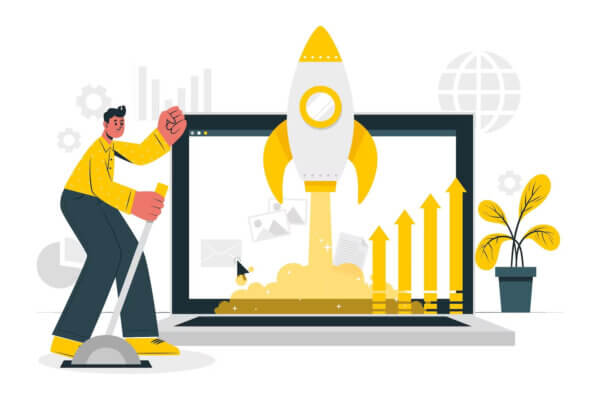
Are you having trouble optimizing your WordPress site’s speed and performance? Do you feel like you’re losing customers due to slow loading times? Don’t worry, you’re not alone. Many website owners struggle with the same issue.
WordPress is one of the most popular content management systems in the world, used by millions of websites and blogs. As such, it is important to ensure that your WordPress site is running as efficiently as possible.
Fortunately, there are plenty of optimizing WordPress solutions that improve your site’s performance. In this article, we’ll explore 13 ways to optimize WordPress site speed and performance, from caching plugins to optimizing images. By leveraging these tips, you can ensure that your website is running smoothly and efficiently, giving your customers an enjoyable user experience. Let’s get started!
What is WordPress optimization?
WordPress optimization is the process of improving WordPress’s functionality. Moreover, it improves and tunes your WordPress site to increase performance and be more accessible.
This consists of many aspects such as having the correct specification update, WordPress optimization, and managing plugins. Some other elements of WordPress optimization include using the latest PHP versions, choosing the right web hosting provider, and so much more.
If you are looking to test WordPress speed & performance, you can use numerous free tools such as:
Then developers will use these tools to generate a report to see how your site is doing. These reports can help developers figure out what exactly is causing a slow site or poor performance.
Common WordPress website optimization issues
Let’s take a look at some common WordPress site optimization issues you may have encountered.
Ignoring plugin & WordPress updates
One of the biggest mistakes WordPress site owners make is ignoring plugin updates & WordPress core updates. This can cause so many problems down the line. Some of these problems include:
- security issues such as hackers, viruses, and bots
- not gaining new features that can better your site
- your site may slow down and become unreliable
Using Professional 👉 WordPress maintenance services 👈 can help you prevent these issues because your site will consistently be updated.
Not optimizing your WordPress themes
Another issue you may have run into is not optimizing your WordPress theme. Many people turn to a pre-made WordPress theme that tends to be overloaded with various features, design elements, content blocks, plugins, etc. The author of these default WordPress themes wants to give you every single option possible, for you to be able to build the website that you want. And when buying such a theme, that is your objective as well. You want endless possibilities in 👉 developing your WordPress website 👈.
But the truth is you will probably use about 20 or 30 percent of what is offered in this pre-made theme. While the other 70 or 80 percent is not being used. These unused elements, features, etc. can be located both in the backend of your site as well as the front end.
So what does this do? Well, it ends up taking up space. Plus it will cause your site to slow down and lower overall website performance. Pre-made WordPress themes may not be the best option if you are looking to optimize and speed up your site.
Not minifying source code, scripts & styles
Minifying source code, scripts, and styles on a WordPress site are essential in order to ensure optimal performance. Not minifying these elements can lead to slower loading times and a decrease in user engagement. Not minifying source code can also make it difficult for search engines to crawl and index the website, resulting in lower rankings.
Furthermore, not minifying source code increases the risk of security vulnerabilities as malicious code can be easily inserted into the un-minified version. For all these reasons, it is important for WordPress site owners to ensure that their source code, scripts, and styles are properly minified.
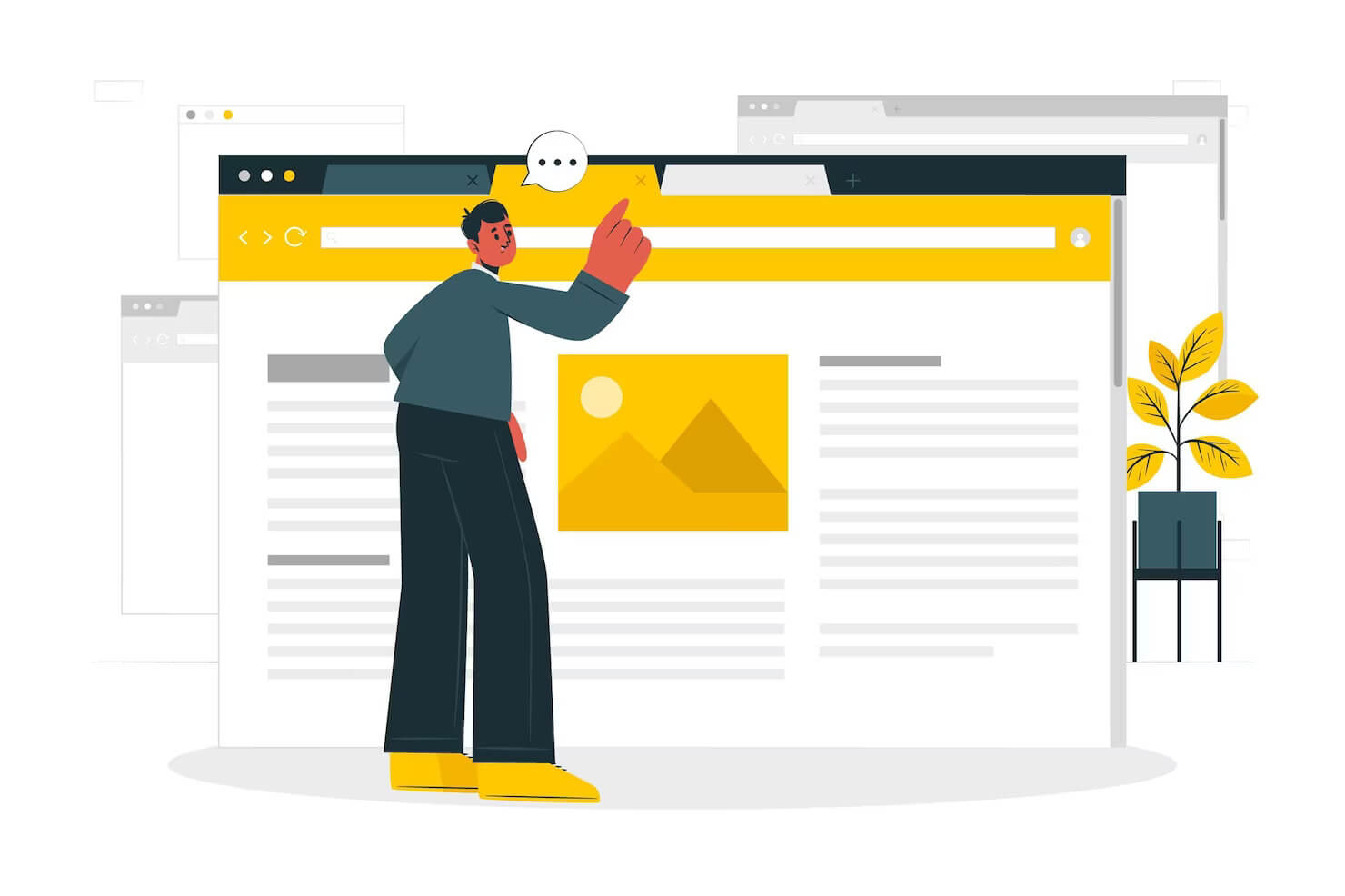
Not optimizing images
Image optimization is a vital step in speed optimization. Before adding images to your WordPress media library you need to optimize them. When you do not optimize your images you are slowing down your site. The media files may be too large or in the wrong format. Both these can take a toll on your site and slow it down.
Not choosing the right web host
The web hosting provider can make the world of a difference. Your website will load at a different speed depending on the host that you choose. Not every 👉 web hosting service 👈 is created equal and not all of them are best suited for WordPress sites. You can have hosting that causes your website to load slowly or worsen performance.
You can have the same site on different web hosting servers and it will perform completely differently in terms of website speed and website performance.
Animated Hero Section
So, a little-known fact is that if you have an animated hero section, your website will probably rank lower in search engines. Google pays close attention to everything that is above the fold. And if your hero section is animated, or has a slider, or a video chances are these things are not optimized. This results in a slow WordPress website.
It is better to keep your hero section simple and without a ton of animation. While they may look cool, they are not the best option if you want to speed up a WordPress site and improve performance.
Not using caching plugins
Not using a caching plugin for your WordPress site can be a major problem. Caching plugins are designed to improve the user experience by making sure that your website loads faster and more reliably. Without a caching plugin, you may find that your website takes longer to load, or it may even fail to load at all.
This can lead to decreased user engagement and lost customers. Additionally, not using a caching plugin can also cause problems with SEO rankings as search engines prioritize sites that load quickly and efficiently. All in all, not using a caching plugin for WordPress is definitely not recommended if you want to keep your website running smoothly and get the most out of it.
External scripts
So, when creating a WordPress site we may use a lot of external third-party integrations. Some of these include the Google Analytics plugin, HotJar, Facebook Pixel, etc. These popular tools have been created by developers keeping in mind to not take a toll on your website in terms of speed and performance.
However, if you are using less well-known tools it’s worth noting that it may slow site speed and reduce performance. This is because your WordPress site has to retrieve extra scripts. It can be frustrating for the user because the application or website is not loading as fast as they expect.
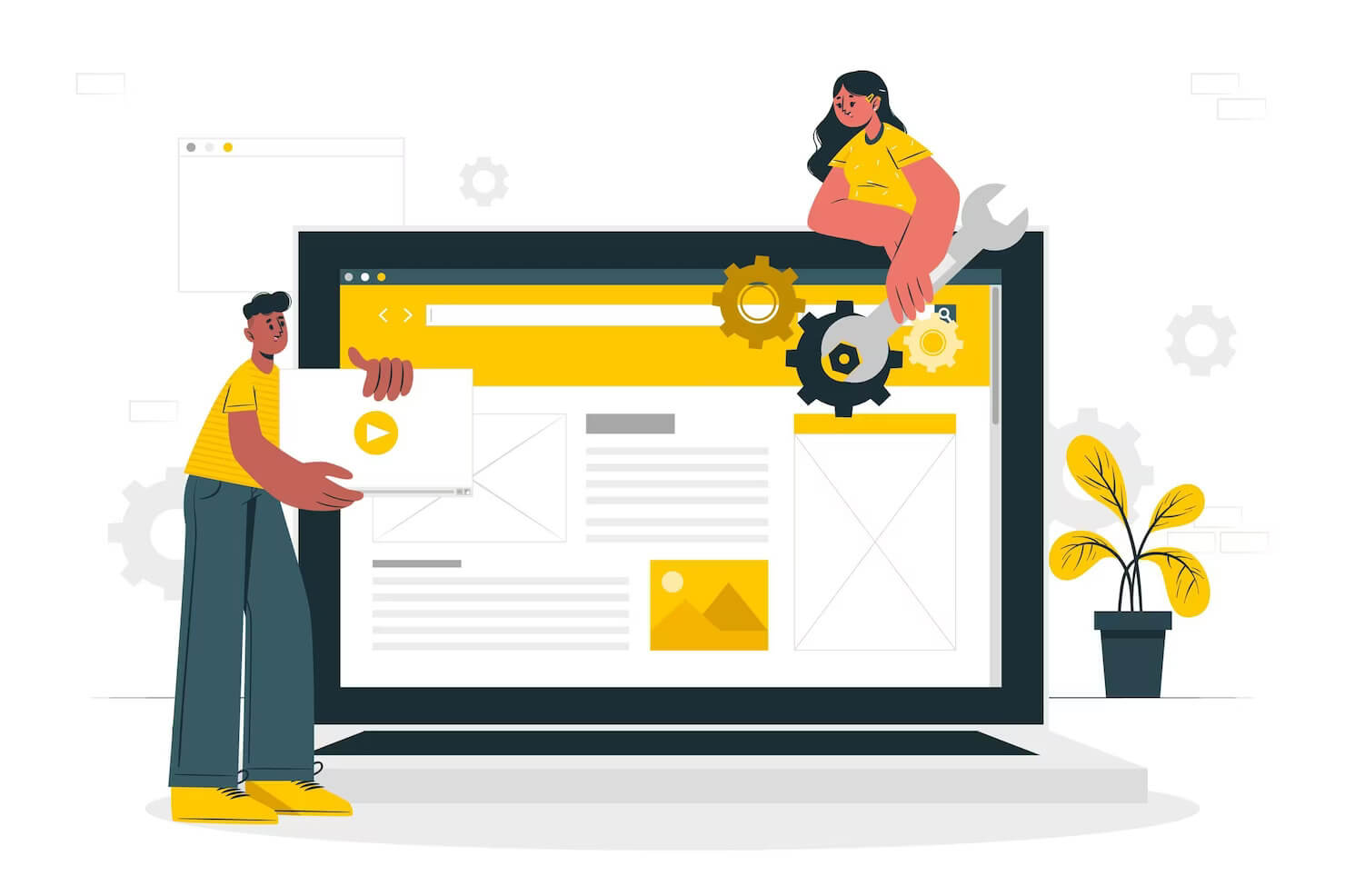
Installing too many WordPress plugins
A popular route that many website owners will take when creating their WP site is installing a ton of different plugins. This is a huge mistake and can cause multiple problems for your website.
First of all, each plugin is created by a different author and the code quality can vary. Poorly written code can leave room for hackers to access and damage your site. The more plugins you have the greater the security risk. You really only want to use 👉 high-quality WordPress plugins for your site 👈.
Also, WordPress plugins installed on your site can impact site speed and performance. Not all plugins are optimized to help you have a speedy site. Plus, they can decrease overall performance. So while it may be tempting to use a ton of WordPress plugins, it’s not always the best option.
WordPress Optimization solutions & best practices
So, now that we have covered all the issues that may prevent you from optimizing your WordPress site for speed & better performance. Some solutions and best practices to gain a fast, optimized WordPress website include:
- Keep your WordPress site & plugin updated
- Delete unused plugins & install only top-quality WordPress plugins
- Bundling CSS styles and JavaScript scripts
- Use a content delivery network (CDN)
- Use a custom theme
- Image optimization
- Reduce External HTTP Requests
- Choose the right hosting provider
- Install a WordPress Caching plugin
- Lazy loading
- Database optimization
- Use the latest PHP version
- Optimize Background Processes
Let’s explore how to speed up WordPress and optimize performance in more detail below.
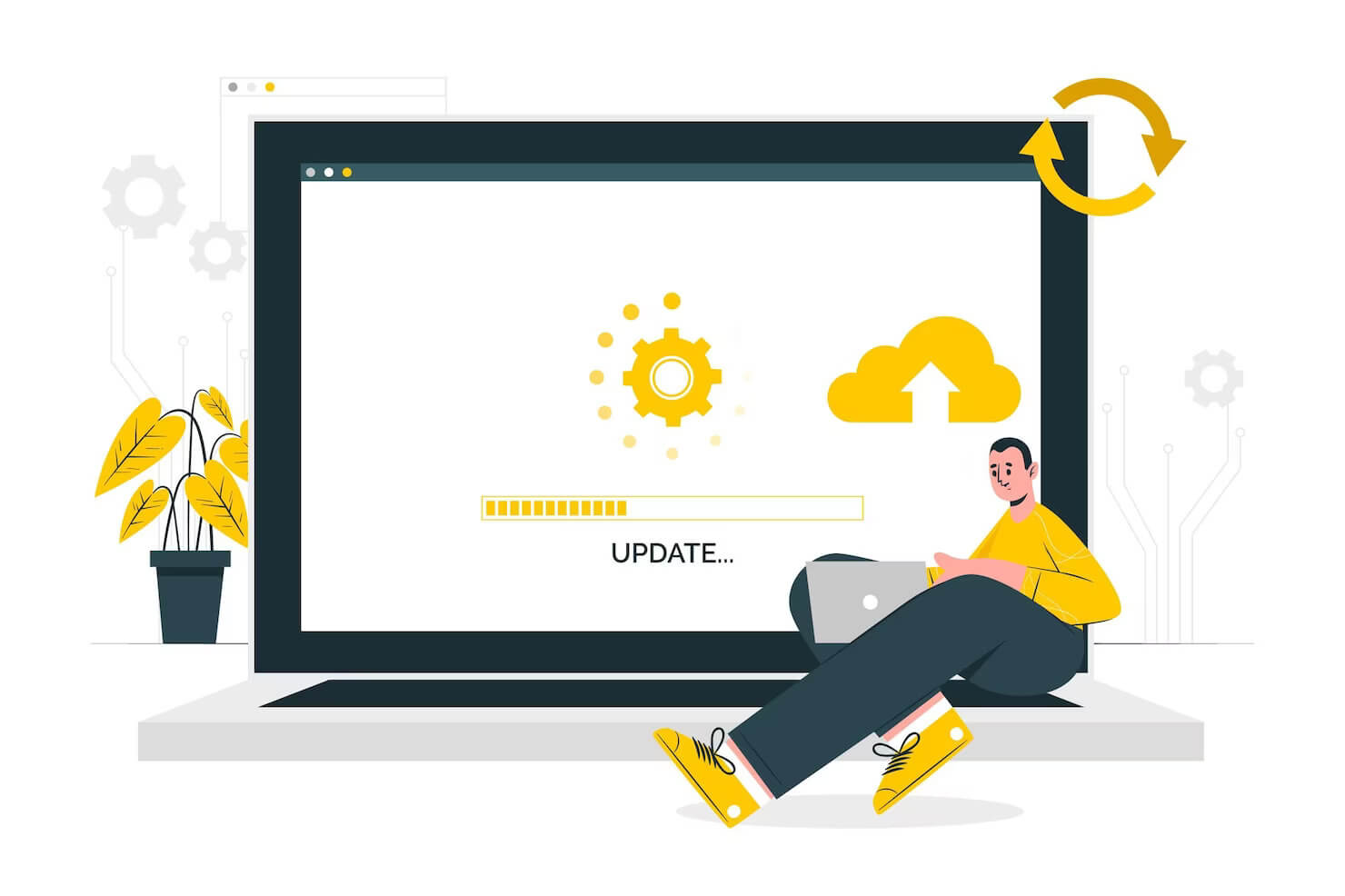
Keep your WordPress site & plugin updated
The step toward WordPress performance optimization is updating your site and plugins regularly. Each update will improve security, add new features and keep your website running smoothly.
Not keeping your WordPress site updated along with plugins can make your website less reliable. You may have security issues as well. Your site may slow down and discourage users from visiting your site.
Delete unused plugins & install only top-quality WordPress plugins
Besides ensuring that the WordPress plugins are kept updated it is also important to delete unneeded ones in a hurry to improve the speed of the website. Moreover, plugins that contain no security are likely to cause problems with website performance unless removed properly. WordPress plugins can create issues if they have not been uninstalled properly. This is because the WordPress database will hold the file. And when you delete unused plugins the standard way some data may be left behind. This over time will slow down your site.
Plus, as we mentioned earlier, many plugins are not optimized in such a way as to help you have an ultra-speedy site. They are only as good as the author who created them and with thousands of plugins available in the WordPress library, trust us not all of them are diamonds.
All that being said, a good way to improve WordPress site optimization is to avoid using plugins. If you do not need them, do not use them. Most times, it’s better to ask a WordPress developer to create the function you need by adding a few lines of code, than using a WordPress plugin. It is a safer option and the created code will be optimized and not slow down your site.
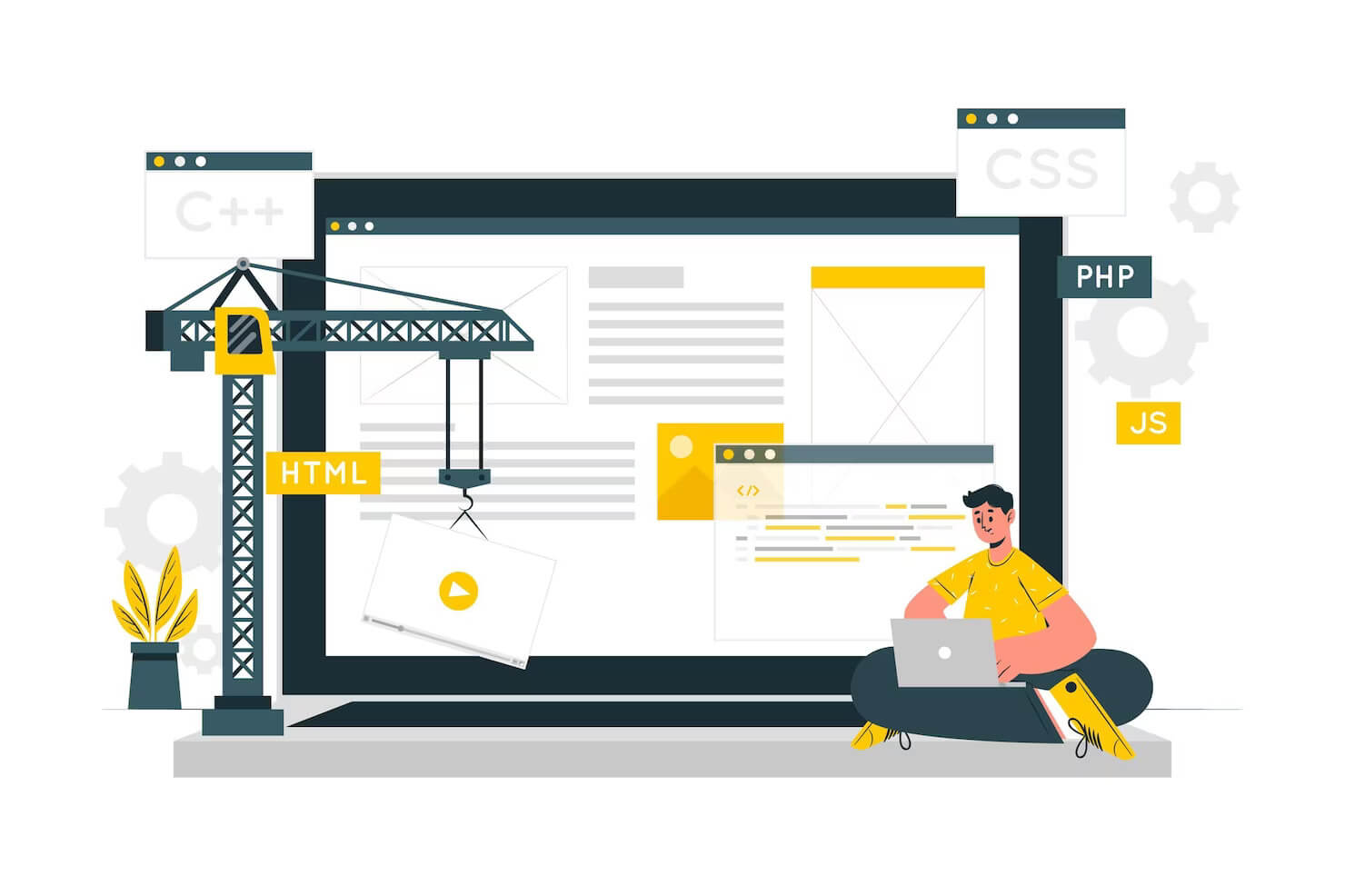
Bundling CSS styles and JavaScript scripts
Using CSS and JavaScript is fundamental for any website. These files must be sent to websites when the visitors load their pages. In order to optimize WordPress website performance, bundling CSS styles, and JavaScript scripts is an important step. By doing this, you can reduce the number of HTTP requests sent from your server to the browser, which in turn reduces the site loading speed.
This technique can also help you minimize the size of your website’s codebase, making it easier for developers to maintain and update. With bundling CSS styles and JavaScript scripts, you can ensure that your WordPress website is running as efficiently as possible.
Use a content delivery network (CDN)
Content Delivery Networks (CDNs) are becoming increasingly popular for delivering content to users. They offer several advantages over traditional web servers for hosting content, such as improved speed, scalability, and cost savings. CDNs are worth considering if you want to ensure that your content is delivered quickly and reliably to your users.
CDNs are a great choice when it comes to delivering large amounts of data quickly and consistently. By using a distributed network of servers around the world, they can provide faster speeds than a traditional web server hosting solution.
An example of where CDN is useful
If your website hosting service is in the US, you can use the server. Visitors in the United States may experience faster loading times compared to those in Europe or Asia. This is why 👉 using a Content Delivery Network (CDN) is crucial 👈 to increase loading speed. CDNs are networks of servers that run around the globe. The servers may have static content which is part of your site. CDNs typically consist of far more server locations than other host options. So it’ll cache your site directly to the site visitor and at lightning speed.
Some other benefits of using a Content delivery network
Furthermore, CDNs can handle sudden spikes in traffic with ease due to their distributed nature. Additionally, CDN services are often more cost-effective than traditional web server hosting solutions because they require fewer resources and less maintenance.
Overall, Content Delivery Networks offer several advantages over traditional web server hosting solutions. They provide faster speeds and better scalability while also being more cost-effective in the long run. For these reasons, CDN services are definitely worth it.
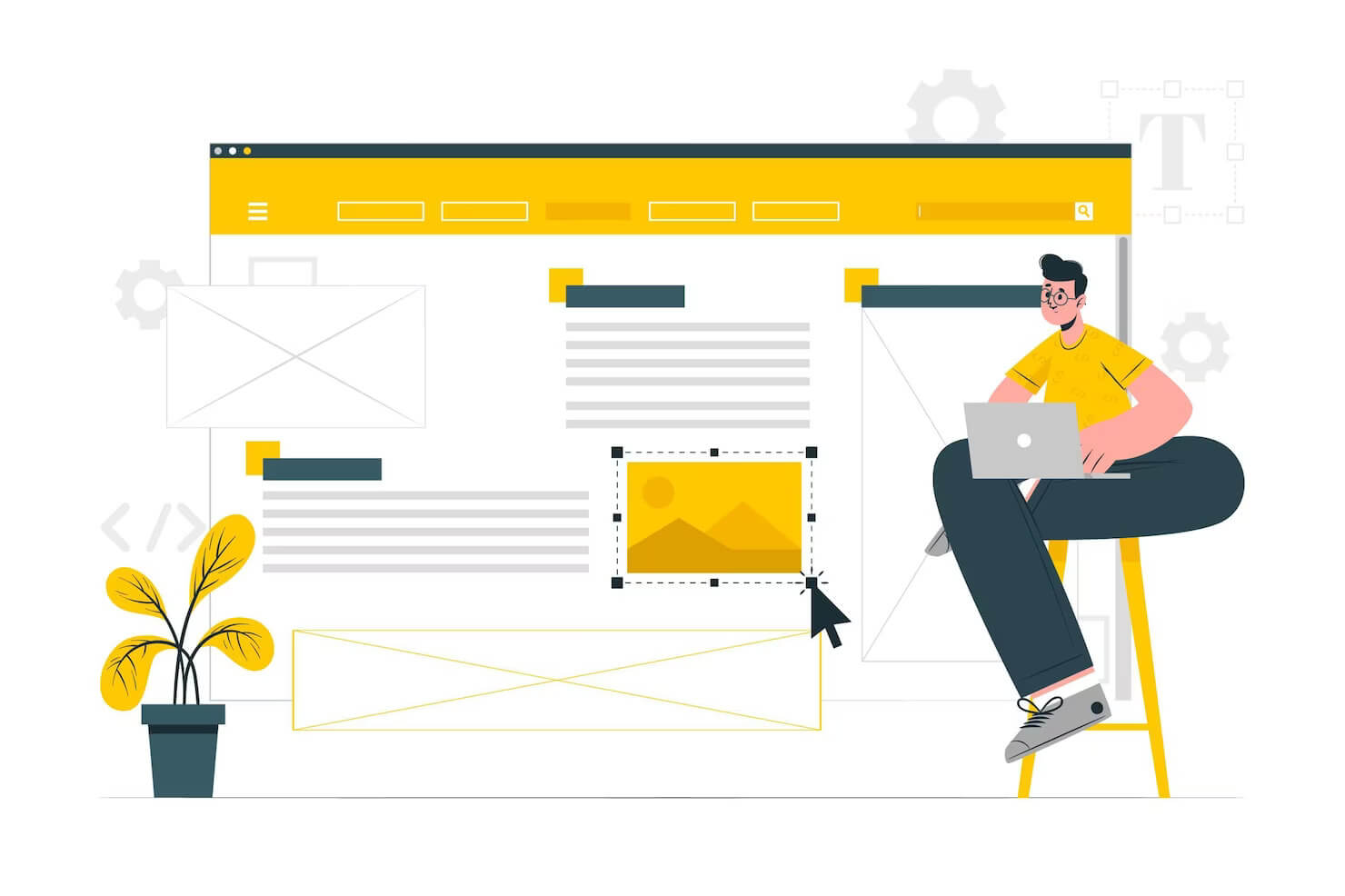
Use a custom theme to speed up WordPress
WordPress is one of the most popular CMS platforms for creating websites and blogs. However, WordPress can be slow if you don’t use a custom theme. A 👉 custom theme 👈 can significantly speed up your WordPress website by optimizing your code, reducing the number of plugins, and improving the overall design of your website.
You can have the same site built using various themes and see a vast difference in performance. This is because many pre-made themes are not necessarily made with optimization in mind. They have the approach of throwing at you every element, feature, etc. possible to allow you to build your site.
Custom themes are developed to include all the elements, features, etc. that you need without any excess. While, when you need a new element or feature you need to ask a developer to create it. The theme will be developed in such a way as to load quickly, give a great user experience, and also overall good performance.
Using a custom theme for WordPress can help you get more out of your website in terms of speed and performance. It also gives you more control over how your website looks and functions. With a custom theme, you can easily make changes to the design without having to worry about compatibility issues or coding errors.
Image optimization
Optimizing images can help speed up WordPress sites and optimize performance. There are a few ways to optimize your images.
First, you can optimize images by compressing them using tinyPING. Compressing images will shrink the file size of the image without losing its quality. Secondly, you can also convert all your images to WebP formatting which allows your images to load faster and take up less space on your website.
Another way to optimize images is to serve them through a CDN as opposed to a web server. A content delivery network can fast deliver images and other content to your user. This is a much faster route than a hosting server.
You can also try various plugins to help you with image optimization such as Optimole, Imagify, etc. These plugins can resize and compress files of various formats.
The last step in image optimization is to clean out your WordPress media library that can be found in your WordPress admin dashboard. This can also help optimize your database because you are eliminating unnecessary files.
Reduce External HTTP Requests
Some of the plugins in WordPress load files from other websites. They may contain scripts, stylesheets, or images from outside sources, including Facebook, Google, or other analytics sites. You may use some of these tools on your website and that can affect the speed of your site and overall website performance. This is especially true if these tools are making too many requests.
When your plugins make more requests than they should, which could slow your site greatly.
These HTTP requests can be reduced by taking a few extra steps such as:
- First of all, make sure the tool is loading asynchronously. There is nothing worse than loading unnecessary things before what is most important. When a user enters a website or launches an application, it doesn’t matter whether Hotjar will track him or not. The user just wants to display the website/application. Luckily popular tools like, Google Analytics and Hotjar load asynchronously “by default”.
- Every tool is added for a purpose. For example, Hotjar observes the user’s behavior and records his movements. Google Analytics collects more detailed information that is not visible to the user. In any case, we can limit the scope of operation of the above-mentioned tools. And chances are we can limit operations on other less popular tools as well. For example, in the Hotjar configuration, we can set which pages are to be tracked. At first, Hotjar tracks them all down. There is also such a thing as “sampling”, which additionally limits the number of tracked users. The same applies to Google Analytics. Perhaps we do not need to collect everything, but only one specific piece of information. We are also not interested in data from bots, so in the settings, it is worth clicking “Exclude all hits from known bots and spiders”
- Another option with external HTTP requests is having them load and run through Google Tag Manager. All the scripts will load in Google Tag Manager (GTM), while on your site you will have to load GTM. Plus you can also use lazy loading to run Google Tag Manager on your WordPress site. So you have control over which tools are loaded first, second, etc. Because, as we mentioned, the user only cares about being able to use your application or website.
These are just some ways to reduce the number of HTTP requests on your site.
Choose the right hosting provider
The right hosting provider is key to WordPress site optimization. We have tested this out, multiple times. Creating a website and running it on various hosts will result in different page speed scores and performance scores.
Therefore a thorough analysis will help determine a suitable host for your website. When selecting an online hosting provider it is important that you 👉 choose a hosting provider 👈 that offers the best possible hosting solution. Hosting providers generally provide a number of different types of hosting WordPress sites. Take into account the quantity of data you are planning on uploading and expected traffic beforehand to get optimal site performance.
Here at Acclaim, we suggest using Cloudways for your WordPress website. There are numerous benefits of 👉 using Cloudways 👈 such as:
- ultra-fast, no delays in loading
- based on a cloud infrastructure
- provides additional cache layers
- production and development aspect that is connected to the repository
- the server is adapted to WordPress sites
- high level of security
- ease of scalability
Not to mention that this website hosting provider is made specifically for WordPress sites. It is more compatible than other website hosting providers out there.
Install a WordPress Caching plugin
Installing a WordPress caching plugin is one of the most effective ways to improve the performance of a WordPress website. Caching plugins can help reduce page load times, optimize your website’s performance, and make your WordPress site faster.
Caching plugins store copies of your webpages in the browser’s cache, so that when a user visits your site, they don’t have to download all the files again. This helps to reduce server load and speeds up loading times. Additionally, caching plugins also help with SEO by reducing server response time and improving page speed scores.
Overall, installing a WordPress caching plugin is an easy way to improve your website’s speed and performance without having to invest in expensive hardware upgrades or complicated coding solutions. So we suggest you install a caching plugin on any website. Caching makes your website 2x or 5x better.
The WordPress caching plugin we use is WP Rocket, this is paid plugin that is the best at caching your site. This plugin enables you to boost your website loading time. Plus it will improve your PageSpeed score. And lastly, it will optimize your Core Web Vitals.
Also, it has advanced options such as:
- delaying JavaScript execution
- minification
- removing unused CSS files
- lazy loading
This plugin provides you with so many features, it’s as if you installed 3,4,5, or 6 different plugins to tackle caching your website.
Lazy loading
When you use lazy loading, WordPress users will view a website that does not have multimedia elements right away. This is a great way to speed up WordPress site speed because you are able to offer your website user something to view or work with. While other elements load. You can lazy load images, videos, and other multimedia files.
Moreover, you may use lazy loading for CSS styles and JavaScript. So while a website visitor is scrolling various elements ‘pop up’ and load, as opposed to having to wait for the whole site to load before you can use it. When a visitor enters the site they see everything that is above the fold, right away, so that they do not have a white page. And as they scroll everything else loads in 2 to 3 seconds.
WordPress database optimization
WordPress typically has a MySQL database. An open-source relational database management system is the most widely used method for building a database. Databases store all these data in tables, rows, and columns. Having a WordPress website for some time, your database may contain data that is no longer useful or required to run your site.
So during the process of optimizing your database, you can eliminate unnecessary data from your system. Some these you can delete during this process include:
- deleted post revisions
- unused tags
- unused plugins
- spam comments
- unnecessary code
- and so much more
You can also improve your database structure easily during this time to make it more functional for your website. While also, improving your 👉 WordPress site speed and optimization 👈.
Use the latest PHP version
PHP is the server-side programming language that has primarily application use in web development. WordPress is written in the most basic versions of PHP together with the theme and plugins. This language has become extremely popular amongst WordPress users. It is advisable to use a host that supports PHP7 or higher.
PHP7 provides huge performance improvements. Currently, PHP can handle 3 times more request requests in seconds in comparison with PHP 5.6. PHP 7.5 averages about 10% less than PHP 7.1.
Therefore, using the latest PHP version is a great way to speed up WordPress and improve performance optimization. By upgrading to the latest version, you can ensure that your WordPress site loads faster and more efficiently.
Not only will this help your visitors have a better experience on your website. But it will also improve your SEO rankings. Additionally, using the latest PHP version can help reduce server load times. This allows for faster load speed and improved user experience.
Optimize Background Processes
Another key step to optimizing your WordPress website is by optimizing background processes. Background processes can be scheduled tasks that run routinely such as:
- backup plugin tasks
- scheduled post publishing
- bots and crawlers trying to fetch content
- WordPress checking for plugin and site updates
Many of these things can be adjusted to run when there is low traffic on your site such as post-publishing or even backups. Moreover, when it comes to backups you can use a different solution than using a plugin. For example, you can use a SaaS solution to have real-time backups. Another option to minimize background processes is to run things manually.
Why should you speed up & optimize your WordPress site?
Having a slow WordPress site can have serious implications for your business. It affects user experience and search engine rankings. Therefore, it is important to ensure that your WordPress website is loading quickly and efficiently.
Optimizing WordPress for speed can help you improve page load time, reduce bounce rates and increase conversions. It can also improve the overall performance of your website, making it faster and more reliable. By speeding up your WordPress site, you will be able to provide a better user experience to visitors and increase the chances of them returning in the future.
Do you want to check the health of your website?

Remember that WordPress speed is just as important for mobile devices
Although mobile devices are not necessarily new, you may not know that speeds play a big part in Google’s mobile search algorithms for mobile devices. Using slow websites that still focus heavily on searches for keywords, you may get a good rank. Nevertheless, Google prioritizes 👉 faster mobile websites 👈. 1 in 5 Americans considers themselves merely mobile users. This is why it’s important to optimize your WordPress website speed and performance across the board on all devices.
TL; DR: Summary: how to achieve good WordPress optimization?
WordPress is one of the 👉 most popular content management systems 👈 (CMS) out there. It’s used by millions of websites around the world, from small businesses to major corporations. That’s why it’s so important to optimize WordPress solutions for speed and performance. It’s not just about making sure your site runs smoothly; it’s also about attracting and retaining visitors.
Many website owners make several common mistakes that will prevent them from increasing site speed and WordPress site performance. Some of these include ignoring WordPress and plugin updates, 👉 using free pre-made WordPress themes 👈, and not optimizing images. Some other errors you make that will not speed up WordPress include not using the right web hosting providers or using a traditional web server to load web pages as opposed to a CDN.
A couple of other common errors include:
- not using caching plugins
- not minify CSS files and JavaScript
- not reducing external scripts
- and using too many WordPress plugins
However, with the right strategies, you can make sure your WordPress site is running optimally and providing a great experience for your visitors.
Let’s break down 13 ways that can help you achieve good WordPress site speed & performance optimization:
- Keep your WordPress site & plugin updated
- Delete unused plugins & install only top-quality WordPress plugins
- Bundling CSS styles and JavaScript scripts
- Use a content delivery network (CDN)
- Use a custom theme
- Image optimization
- Reduce External HTTP Requests
- Choose the right hosting provider
- Install a WordPress Caching plugin
- Lazy loading
- Database optimization
- Use the latest PHP version
- Optimize Background Processes
Are you looking to speed up your WordPress website? Do you need help with WordPress website optimization? 👉 Drop us a line 👈, and let’s chat about WordPress speed optimization and improving performance.
Comments